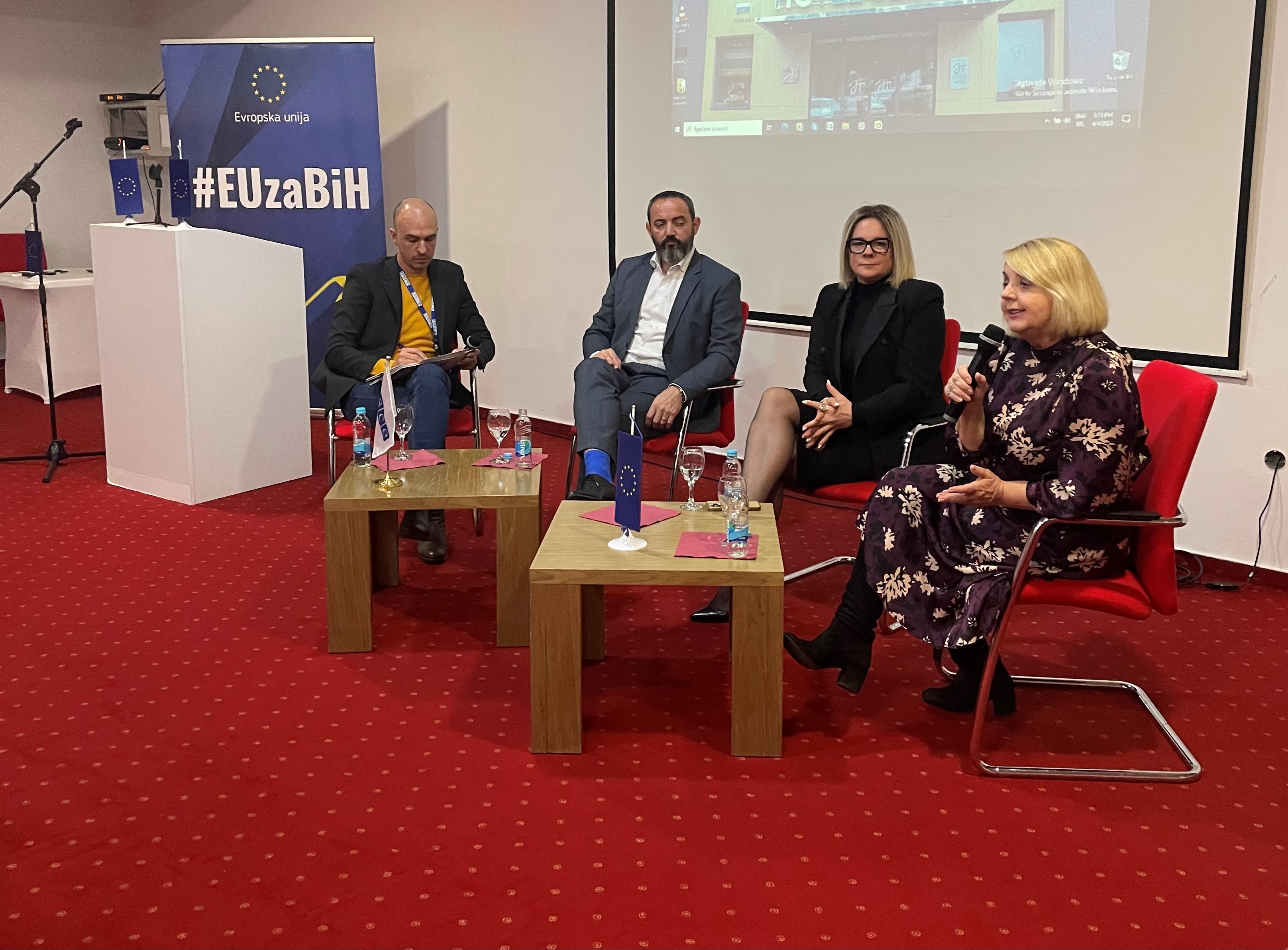Representatives of judicial institutions, ministries of interior and police bodies and associations of journalists gathered in Banja Luka on 4-5 April 2023 at the Conference “Ensuring systematic and institutional follow-up to cases of threats and violence against journalists and media workers”, organised by the European Union in Bosnia and Herzegovina in partnership with the OSCE Mission to BiH and the High Judicial and Prosecutorial Council of BiH.
Participants discussed practices for protecting journalists and mechanisms for registering the number of attacks as a step towards implementation of Key Priority 12 from the 2019 Opinion of European Commission on the BiH’s application for EU membership. The Opinion notes that BiH needs to ensure it guarantees freedom of expression and of the media and the protection of journalists, including through ensuring the appropriate judicial follow-up to cases of threats and violence against journalists and media workers.
It was recalled that the latest EC Report on BiH noted that official countrywide data collection on threats and attacks against journalists and media workers is still lacking. Moreover the Report clearly stated that the authorities are expected to act swiftly and demonstrate zero tolerance for threats or attacks against the media, including by ensuring effective police investigations and judicial prosecution leading to final convictions of the perpetrators.
Representatives of judicial and police institutions from different levels of authority in Bosnia and Herzegovina agreed on a set of recommendations in order to improve the institutional response to cases of attacks of journalists.
Participants from different prosecutor’s offices expressed a readiness to consider ways of establishing contact points tasked with the safety of journalists and establish a system of registration and monitoring of cases concerning endangerment of safety of journalists and explore ways of prioritising these cases.
The conference also resulted in recommendations to interior ministries to keep statistics of the attacks on journalists and determine a mechanism for cooperation with associations of journalists and individual reporters. Another recommendation was that it is necessary to improve sensibility of police and judicial officials in terms of incidents including journalists, but that it is also necessary to raise the awareness of journalists and the media community about the ways they can secure an institutional response to threats and attacks on them.
It was also noted that the HJPC should recommend to the courts and prosecutor’s offices systematically and consistently use the existing options in their CMS and TCMS in terms of registering cases concerning journalists and media workers.
The panels during the conference also reflected on the most recent developments regarding media freedom, especially in the Republika Srpska, that include the adoption of draft changes to Criminal Code of RS towards re-criminalisation of defamation, as well as cases of pressures on journalists, including lack of protection in individual cases. The EU’s position is that proposed legislation in the RS to criminalise defamation would impose unnecessary and disproportionate restrictions on independent media and civil society, resulting in a chilling effect on media freedom and freedom of expression, as well as a step backward on the EU path.

